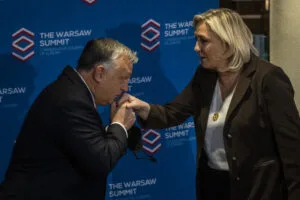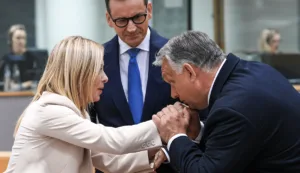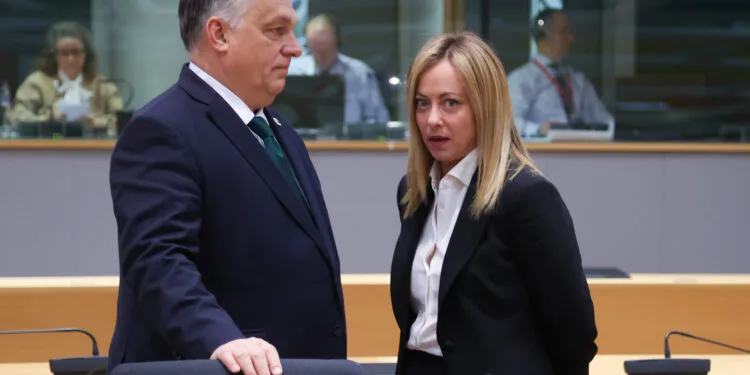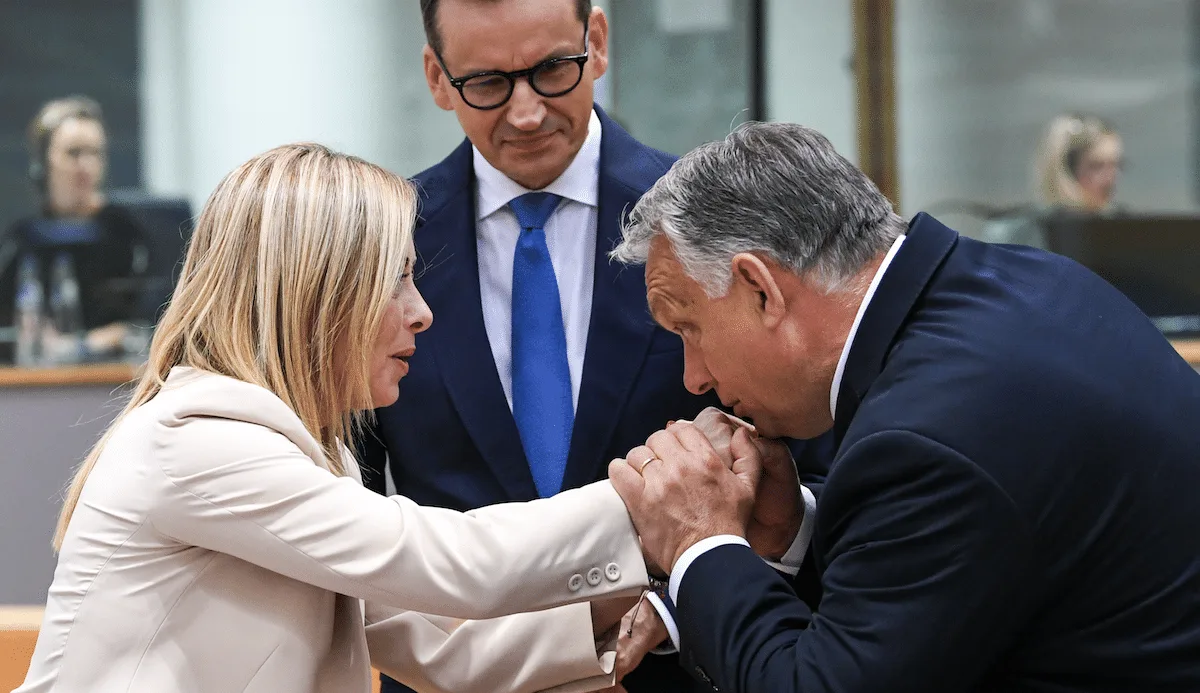Brussels – Now, Giorgia Meloni and Marine Le Pen are also cashing in on the political backing of one of the unchallenged landmarks in the European sovereignist camp for over a decade. Hungary’s prime minister, Viktor Orbán, has openly come out in favor of a post-June European elections alliance between Italy’s Prime Minister and President of the European Conservatives and Reformists Party (ECR) and France’s most charismatic far-right figure in Rassemblement National: “If they manage to work together, within a single group or coalition, they will be a force for Europe.”

Orbán’s endorsement came during an interview with the French weekly Le Point, in which he spoke about post-vote scenarios and the six-month presidency of the EU Council, of which Hungary will take the reins starting July 1. According to the Hungarian Prime Minister, the 2024 European elections will be “historic,” as they “will probably be seen as the ones that decide peace or war in Europe.” However, Orbán is not only interested in the question of “how many MEPs are willing to go ahead with the war in Ukraine and how many are in favor of ending it” (he is the most pro-Russian leader among the 27 Member States) but, more importantly, that “there be more sovereignist MEPs in favor of a Europe of nations” in the next legislature of the EU Parliament.

This is where the issue of the possible single camp among all conservative and far-right parties in Brussels comes in, as Le Pen proposed to Meloni on Sunday (May 26): “Now is the time to unite. It would be really useful. If we succeed we can become the second group in the European Parliament,” the Rassemblement National President said. The scenario remains very difficult for all sorts of reasons, internal and external to the groups of the ECR (to which Fratelli d’Italia belongs) and the far-right Identity and Democracy (to which Rassemblement National and the League belong and from which
the Germans of Alternative für Deutschland were expelled recently). Yet, for Orbán, this is the decisive hour for alliances: “The future of the sovereignist camp in Europe, and of the right in general, is now in the hands of two women.”

The stakes are enormous since “the attractive force of their cooperation will be very strong.” Enough to “reshape the configuration of the European right, or even supplant the European People’s Party,” the European political family that Orbán abandoned in 2021, just before the humiliation of being expelled by the Populars. The Hungarian Prime Minister certainly does not hide his interest in joining this unique camp with his Fidesz party – whose members for the past three years have been relegated to the group of non-enrolled members of the EU Parliament – with the prospect of joining the European party chaired by Meloni. “We are ready, and we will enter; the idea was to enter already before the elections, but at this point, we will do it after the vote,” he said on the sidelines of the extraordinary European Council in February.
The Hungarian Premier confirmed that he has“great respect” for his Italian counterpart, acknowledging her “very complex” task since she was appointed Premier in the fall of 2022: “She was accused of being an extremist, of not respecting the values of the European Union,” but “today, everyone respects her right-wing government.” This is also seen by the opening of the current European Commission President and Spitzenkandidatin (joint candidate) of the European People’s Party (EPP), Ursula von der Leyen, for possible cooperation in the next legislature with Meloni and her MEPs, but not with the entire ECR group nor even with a single far-right camp that would also include Fidesz, Rassemblement National, Vox, the League, and Poland’s Law and Justice.
English version by the Translation Service of Withub









